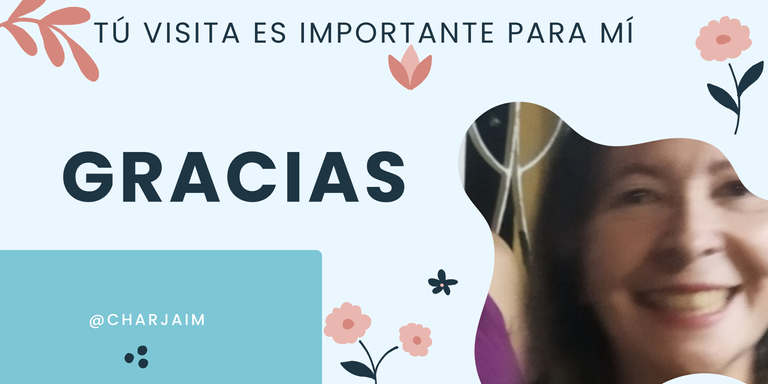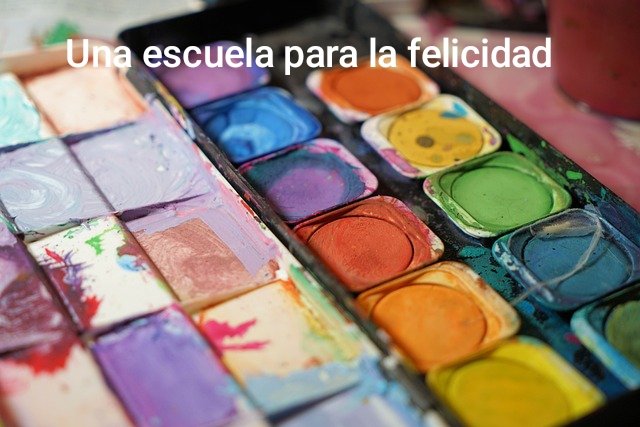Ser feliz es un deber, no tiene sentido mantenerse en una situación, actividad, trabajo, relación o estado que produzca sufrimiento. Dicen que la calidad de la vida y la supervivencia se garantiza gracias a la felicidad. Hoy me he estado preguntando si la educación nuestra está preparada para la concreción de esta en nuestros estudiantes.
He sido enemiga (sí lo escribí bien), de la escuela desde hace tanto tiempo, que ya perdí la efervescencia para hablar de esto. Una vez me preguntó una antipática compañera de trabajo, que por qué había estudiado educación, si no me gustaba la escuela y le contesté de inmediato: «para enfrentar al enemigo desde adentro».
Fue una lucha tonta, como una hormiga intentando romper un saco de cemento, pero no dejo de pensar en ello. En mis clases universitarias con materias, que tenían que ver con la preparación del docente, produje contenidos y estrategias para desentrañar todo lo que había detrás de prácticas anacrónicas, como el dictado, la tarea, los cuestionarios, la plana y la copia, entre otros.
Se producían intercambios muy nutritivos y propuestas para provocar prácticas más adaptadas al mundo de hoy. Recuerdo que se cuestionaba la tarea, con muchas sugerencias de qué hacer, para que los niños pensaran más y desarrollaran su cerebro. Sin embargo, una vez graduados, los vi reproducir en las aulas los mismos procedimientos, que tanto habíamos cuestionado.
No puedo culpar al docente, menos ahora con los más paupérrimos sueldos. Los escolares de hoy asisten a la escuela, como si llevaran bloques en los pies, así como lo hice yo, hace más de cincuenta años. Algunos van motivados por la posible vianda de alimentos que puedan recibir, otros porque pueden salir de la casa, lugar que no les ofrece nada atractivo.
Pero los niños, quienes en su hogar: juegan, pintan, tocan instrumentos, tienen acceso a una computadora, escuchan música, realizan actividades manuales, conversan con los mayores y participan de las dinámicas familiares de cada casa, ven la escuela con desencanto. Lloran porque no quieren ir, se inventan enfermedades, se quejan de la tarea, y no teniendo más remedio, acuden con evidente desgano.
Por efecto de la pandemia, hubo un periodo de cambio interesante, donde los niños y jóvenes realizaban actividades en el hogar, con asesorías a través del WhatsApp, pero quedó un resabio por demás incómodo, que es el seguir enviando asignaciones por esta vía como: maquetas, rotafolios, carteleras y otras asignaciones, que no las hace el niño sino un adulto.
Considero que el momento para cambiar la escuela llegó hace rato. Un pensum con asignaturas como: inteligencia emocional, creatividad, tecnología y robótica, entre otras, hay que ir incorporando.
Ser feliz es una decisión que debe tenerse siempre en cuenta. Desarrollar proyectos que incluyan los propósitos personales y se enfoquen hacia áreas de interés, que promuevan el bienestar, lejos de las prácticas de bullying que siguen presentes.
La escuela tiene que ser el espacio donde provoque estar. Sin prácticas punitivas, sino con un tratamiento al ser humano donde los valores más importantes se fomenten. Con espacios para la reflexión y el intercambio de ideas, en ambientes de cordialidad y paz. Donde el niño desarrolle el autoconcepto, la empatía, la colaboración y el trabajo individual.
Incorporar talleres con expertos artesanos, donde se promueva el hacer y se aprendan oficios. Salas acondicionadas para conferencias, conciertos y artes escénicas, donde el dominio de un saber se ponga en práctica, con apego a las sanas costumbres y donde el amor a los animales estén presentes. Que prevalezcan criterios de libertad y la silla se utilice solo cuando haya necesidad de sentarse y no como forma de amansamiento.
Quizá siga siendo una gran utopía. Me gustaría saber tu opinión al respecto.
Gracias por tu amable lectura.
Mi contenido es original.
Imágenes de Pixabay con su respectiva fuente.
He utilizado el traductor de Google.

Being happy is a duty; there's no point in staying in a situation, activity, job, relationship, or state that causes suffering. They say that the quality of life and survival are guaranteed through happiness. Today I've been wondering if our education is prepared to achieve this in our students.
I've been an enemy (yes, I spelled that correctly) of school for so long that I've lost the energy to talk about this. An unfriendly colleague once asked me why I had studied education if I didn't like school, and I immediately replied, "to face the enemy from within."
It was a silly struggle, like an ant trying to break through a sack of cement, but I can't stop thinking about it. In my university classes on subjects related to teacher training, I produced content and strategies to unravel everything behind anachronistic practices, such as dictation, homework, questionnaires, writing, and copying, among others.
There were very nourishing exchanges and proposals to foster practices more adapted to today's world. I remember that homework was questioned, with many suggestions on what to do to get children to think more and develop their brains. However, once they graduated, I saw them repeating the same procedures in the classroom that we had questioned so much.
I can't blame the teachers, especially now with the most meager salaries. Today's schoolchildren attend school as if carrying blocks on their feet, just as I did more than fifty years ago. Some are motivated by the potential food supply they might receive, others by the opportunity to leave home, a place that offers nothing attractive.
But children, who at home: play, paint, play instruments, have access to a computer, listen to music, do crafts, talk with their elders, and participate in the family dynamics of each house, view school with disenchantment. They cry because they don't want to go, they invent illnesses, they complain about their homework, and having no other choice, they go with obvious reluctance.
Due to the pandemic, there was a period of interesting change, where children and young people carried out activities at home, with guidance via WhatsApp, but an extremely uncomfortable aftertaste remained: continuing to send assignments via this channel: models, flipcharts, bulletin boards, and other assignments, which are not done by the child but by an adult.
I believe the time to change school arrived a long time ago. A curriculum with subjects such as emotional intelligence, creativity, technology, and robotics, among others, must be incorporated.
Being happy is a decision that should always be kept in mind. Develop projects that include personal goals and focus on areas of interest, that promote well-being, far from the bullying practices that are still present.
School must be the place where it is good to be. Without punitive practices, but with a treatment of human beings where the most important values are fostered. With spaces for reflection and the exchange of ideas, in environments of cordiality and peace. Where children develop self-esteem, empathy, collaboration, and individual work.
Incorporate workshops with expert artisans, where making is promoted and trades are learned. Rooms equipped for conferences, concerts, and performing arts, where mastery of knowledge is put into practice, with adherence to healthy habits and where love for animals is present. May the criteria of freedom prevail, and chairs be used only when there is a need to sit and not as a form of taming.
Perhaps this is still a great utopia. I would like to know your opinion on this.
Thank you for your kind reading.
My content is original.
Images from Pixabay with their respective sources.
I have used Google Translate.


